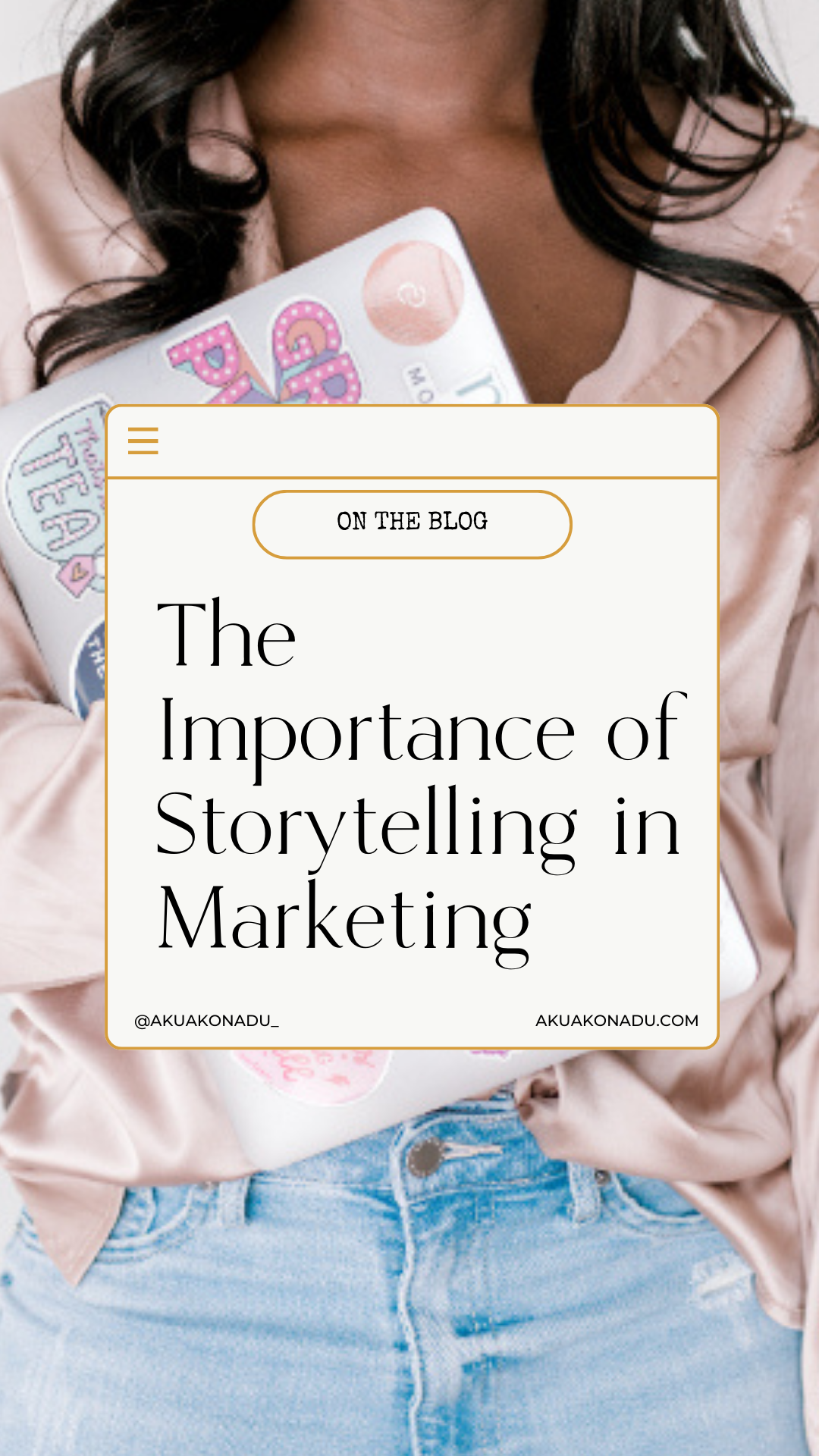
The Importance of Storytelling in Marketing for Small Business Owners
Storytelling is the secret that makes brands memorable and magnetic. It’s not just about selling a product—it’s about creating connections, sparking emotions, and turning audiences into loyal communities. As someone who knows the power of a good narrative, I can tell you this: the importance of storytelling in marketing is only growing.
Think about it. In a world where people are bombarded with ads and pitches every second, storytelling is your ticket to cutting through the noise. It’s how you build trust, stand out, and, ultimately, get people to care about what you offer. If you’ve been feeling like your marketing is hitting a wall, it might be because you’re missing that human touch—the story that pulls your audience in and makes them stick around.
Curious about how storytelling can transform your marketing strategy and set your brand apart? Let’s get into it!

Why Marketing Feels Exhausting Without Connection
Ever feel like marketing is an uphill battle? That’s because it often is when it lacks connection. Traditional marketing relies heavily on pushing messages: “Buy this!” or “Sign up now!” Sure, those tactics might yield some clicks, but they rarely foster long-term relationships.
Here’s the truth: people are tired of being sold to. Duh. Consumers crave meaningful connections, and storytelling provides a bridge to their emotions and experiences. Without it, your marketing can feel like screaming into the void—and let’s be honest, nobody’s got time for that!
What Storytelling in Marketing Is
The importance of storytelling in marketing is all about weaving narratives into your content to connect with your audience on a deeper, more personal level. It’s not about exaggerating or inventing—it’s about making your brand relatable and human. Take Apple’s iconic “1984” ad, for example. It didn’t focus on features; it sold an idea—a feeling of rebellion against conformity. That’s the power of storytelling in action. For business owners, storytelling isn’t just a creative bonus—it’s a necessity. Why? Because it works.
Stories matter because they build trust, and trust is the foundation of any successful brand. People are far more likely to buy from companies they feel they can rely on. Plus, emotions stick with people far longer than data. While your product specs might impress, it’s the emotional connection that persuades and retains customers. Finally, storytelling helps your audience feel seen and understood. When your stories align with their struggles and aspirations, it deepens their connection to your brand and builds loyalty over time.

The Psychological Impact of Storytelling on Consumers
Storytelling isn’t just creative fluff—it’s grounded in science, and that’s why it works so well. When we hear a story, multiple areas of our brain light up, almost like a Christmas tree. This phenomenon, known as neural coupling, occurs when the listener’s brain activity mirrors the storyteller’s, creating a strong sense of connection.
Additionally, stories enhance memory retention. Research from Princeton University shows that people are 22 times more likely to remember a fact when it’s shared as part of a story.
On top of that, storytelling triggers dopamine spikes, especially when the narrative includes suspense or excitement. This chemical release makes the experience both pleasurable and memorable. In essence, storytelling taps into our primal need to connect and belong, making it one of the most powerful tools in marketing.
The Benefits of Storytelling in Marketing
You’re already sold, right? Well here are 3 more benefits when you consider the importance of storytelling in marketing.
- Builds Trust and Connection with the Audience: Storytelling helps create a bond between your brand and your audience. By sharing authentic narratives about your journey, values, or customer success stories, you show your audience that you understand them. This builds trust and fosters loyalty over time.
- Increases Engagement and Visibility: Compelling stories capture attention and keep audiences engaged. They’re more likely to be shared, which can expand your reach and boost visibility. Social media platforms especially reward content that sparks emotional connections, making storytelling a valuable tool for growth.
- Differentiates Your Brand in Saturated Markets: In crowded industries, storytelling sets your brand apart. Instead of relying solely on features or price, a well-crafted story showcases your unique identity and helps you stand out. It’s your chance to communicate what makes your brand special in a memorable way.
Start Integrating Storytelling Into Your Content Today
To actually implement this, start by understanding your audience. Research their pain points, desires, and values to create stories that truly connect with them. Knowing what matters to your audience makes your content more engaging and relatable.
Next? Share your “why” to humanize your brand. Explain the passion behind your business and what drives you. A clear mission makes it easier for people to trust and connect with you. Use real stories to add authenticity. Highlight customer testimonials, case studies, or behind-the-scenes moments. Real experiences make your brand feel more genuine and approachable.
Lastly, follow a simple storytelling framework: present a problem, offer your solution, and show the transformation. This structure keeps your stories focused and impactful.
Then at the end of the day, experiment and refine your approach. Test different story formats, track engagement, and adjust based on what resonates. Storytelling is a skill that evolves, so stay open to change.

Final Thoughts on The Importance of Storytelling in Marketing
The importance of storytelling in marketing cannot be overstated. In my experience as a brand and storytelling strategist, it’s the difference between a forgettable campaign and a message that lingers in your audience’s minds. By leveraging the power of storytelling, you’ll not only boost engagement and sales but also build a brand people genuinely care about.
Ready for the next step? Let’s work together and find the storytelling strategies that will help your brand stand out! Contact me today! Not sure where to start? Take my quiz to discover personalized strategies tailored to your unique storytelling potential!
SITE CREDITS | TERMS AND CONDITIONS
©2026 AKUA KONADU,LLC